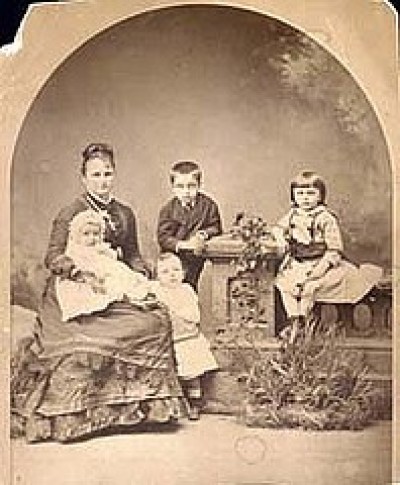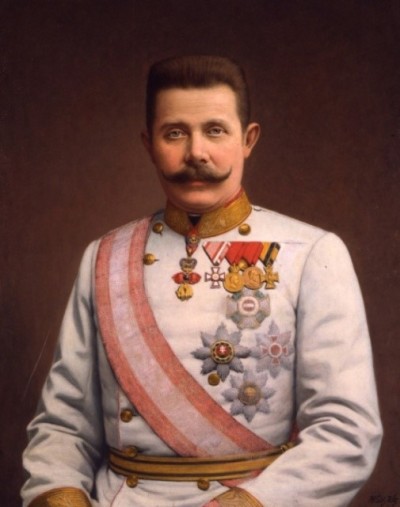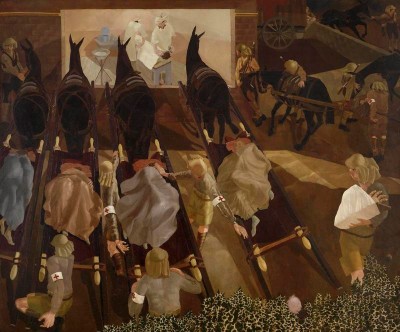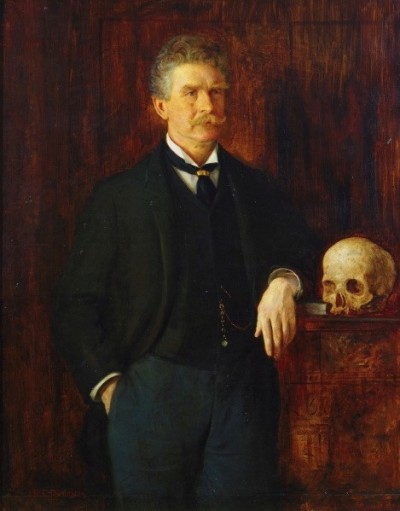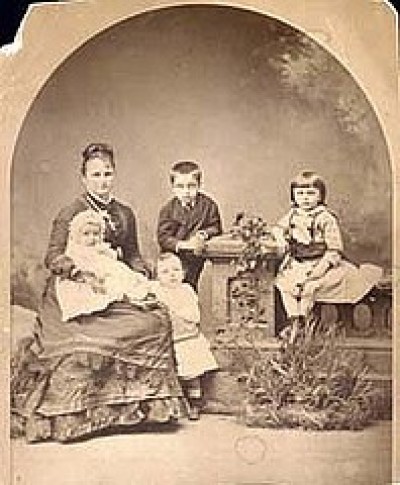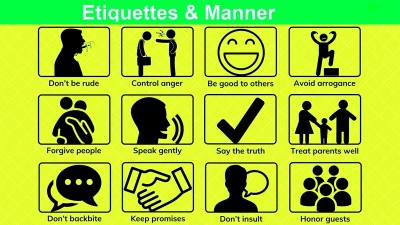Course description
Kate Chopin was born in 1851 in the southern US state of Missouri. Her father was an Irish immigrant and her mother’s family were from Canada. She married at twenty and, before she was thirty, had six children. Her husband’s business failed, which meant the family moved to Louisiana, where he managed other people’s property and opened a general store. This was not enough, however, to pay his debts and, when he suddenly died, Chopin was left penniless and moved back with her mother, who soon died as well.
Chopin started writing to overcome her sadness about their deaths. She wrote novels at first. The most famous, ‘The Awakening’, is now well thought of. However, Chopin’s feminist ideas were before their time and people thought the book was immoral. She turned to short stories, but never made much money from these either.
She died of a brain haemorrhage in 1904. Her reputation as a major writer had to wait until the feminist movement of the 1960s and ‘70s.
Regret
Madameoiselle Aurlie had a good, strong body: red cheeks, hair that was changing from brown to grey, and clear, intelligent eyes. She wore a man’s hat on her farm and an old army coat, when it was cold.
Aurlie had never thought of marrying. She had never been in love. At the age of twenty, someone asked to marry her; she refused and, now, at the age of fifty, she had never been sorry about it.
So, she was alone in the world, except for her dog, Ponto, and the blacks who lived in her huts and worked in her fields, and the chickens, a few cows, a couple of donkeys, her gun (which she used to hunt), and her religion.
One morning, Aurlie stood on her veranda thinking with a group of very small children who were so unexpected and so unwelcome. They were the children of her nearest neighbor, Odile, who was not so near anyway.
The young woman had arrived five minutes before with these four children. In her arms, she carried little Lodie; she pulled Ti Nomme; while Marcline and Marclette followed with undecided steps. Her face was red from crying and excitement. A doctor had called her from a town nearby, where her mother was dangerously sick – but Odile’s husband was away in Texas and the town seemed a million miles away. And
Valsin was waiting with the donkey cart to drive her to the station.
“There’s no choice, Aurlie. You just must keep these youngsters for me until I get back. I don’t want to bother you but there’s no other way. Make them listen to you, Aurlie. Hit them if you need to. Me, I’m half crazy, thinking about the children with my husband not at home, and, maybe, my poor mother already dead!” This terrible last thought made Odile get into the donkey cart, after saying a final, hurried goodbye to her worried children.
She left them in the shadow of the long, low house. The white sunlight was shining on the white wood; some chickens were eating what they could find at the bottom of the steps, and one had bravely climbed onto the veranda, where it was walking up and down. There was a pleasant smell of flowers in the air and the sound of blacks laughing was coming across the cotton fields.
Aurlie stood looking at the children. She stared critically at Marcline, who was holding the fat baby, Lodie, in her thin arms. She looked without much interest at Marclette who was silently crying and at Ti Nomme, loud and unhappy. During those few moments, she was deciding what to do. She began by giving them all food.
If Aurlie’s only responsibility was to feed the children, there was no need to worry, because her kitchen was full, full enough for a bigger emergency than this one. But children are not little pigs: they need attention; they have demands – all unexpected by Aurlie – who did not know how to behave with children.
During the first few days, she really did not understand what to do or when to do it. How could she know that Marclette always cried if you spoke to her in a loud voice? It was just something about the little girl. She got to know about Ti Nomme’s love of flowers only after he cut the heads off her favourite roses so that he could study how they were made.
“It’s not enough to tell him, Madameoiselle Aurlie,” Marcline taught her, “You have to tie him in a chair. It’s what Mum does all the time when he’s bad. She ties him in the chair.” The chair Aurlie used for this was large and very comfortable and, because the afternoon was warm, Ti Nomme quickly fell asleep.
At night, when she told all of them to go to bed, just like she chased the chickens into the hen-house, they did not move but stood, not understanding, in front of her. What about the little pyjamas that they had to take out of the pillows they had brought with them? What about the big bowl of water that should be in the middle of the bedroom so that they could wash their tired, dusty, sun-browned feet until they were sweet and clean? And it made Marcline and Marclette laugh happily – the idea that Ti Nomme could go to sleep without hearing the story of the Bad Wolf; or that Lodie could fall asleep without Madameoiselle Aurlie rocking and singing to her.
“I tell you, Aunt Ruby,” Madameoiselle Aurlie told her cook in secret, “I’d prefer to manage a dozen farms than four children. It’s frightening. Don’t talk to me about children!”
“Nobody can expect you to know everything about them, Madameoiselle Aurlie. I saw that yesterday when the little children were playing with those keys. Of course, you don’t know that playing with keys makes children grow up badly behaved! Just like it makes their teeth soft if they look in mirrors! Those are the things you have to know if you bring up children!”
Aurlie certainly did not pretend to know all that Aunt Ruby knew, who “brought up six little children and buried five” years before. She was glad enough to learn a few little tricks to help her at this moment of need.
Ti Nomme’s dirty fingers made her find white aprons that she had not worn for years at the bottom of her cupboard and she needed to look pleased with the little boy’s wet kisses on her lips and cheeks. She got down her sewing basket – which she almost never used – from the top of the cupboard and put it where she could find it quickly and easily when she needed to sew trousers and shirts. It took her a few days to get used to the crying, laughing, chattering that ran all through the house all day long. And it was not the first or the second night that she could sleep comfortably with Lodie’s hot little body close to hers, and the baby’s warm breath on her cheek like a bird’s wing.
But, at the end of two weeks, Aurlie had got used to these things and she stopped complaining.
It was also at the end of two weeks that Madameoiselle Aurlie, one evening, looking at where the cows were eating, saw Valsin’s donkey cart turning the corner. Odile sat beside him. As they came nearer, the young woman’s bright face showed that her homecoming was a happy one.
But her unexpected return made Aurlie confused. She had to gather the children together. Where was Ti Nomme? He was in the garden, looking at flowers. And Marcline and Marclette? Cutting up her material to make dolls in the living room. Of course, Lodie was safe in Madameoiselle Aurlie’s arms, and she screamed with happiness when she saw the donkey cart bringing her mother back to her.
The excitement was over, and they were gone. How quiet it was! Aurlie stood on the veranda, looking and listening. She could no longer see the cart. The red sunset and the blue-grey coming of night together threw a purple mist across the fields and the road hid the cart from her. But she could still just hear the happy laughing of the children.
“It’s not enough to tell him, Madameoiselle Aurlie,” Marcline taught her, “You have to tie him in a chair. It’s what Mum does all the time when he’s bad. She ties him in the chair.” The chair Aurlie used for this was large and very comfortable and, because the afternoon was warm, Ti Nomme quickly fell asleep.
At night, when she told all of them to go to bed, just like she chased the chickens into the hen-house, they did not move but stood, not understanding, in front of her. What about the little pyjamas that they had to take out of the pillows they had brought with them? What about the big bowl of water that should be in the middle of the bedroom so that they could wash their tired, dusty, sun-browned feet until they were sweet and clean? And it made Marcline and Marclette laugh happily – the idea that Ti Nomme could go to sleep without hearing the story of the Bad Wolf; or that Lodie could fall asleep without Madameoiselle Aurlie rocking and singing to her.
“I tell you, Aunt Ruby,” Madameoiselle Aurlie told her cook in secret, “I’d prefer to manage a dozen farms than four children. It’s frightening. Don’t talk to me about children!”
“Nobody can expect you to know everything about them, Madameoiselle Aurlie. I saw that yesterday when the little children were playing with those keys. Of course, you don’t know that playing with keys makes children grow up badly behaved! Just like it makes their teeth soft if they look in mirrors! Those are the things you have to know if you bring up children!”
Aurlie certainly did not pretend to know all that Aunt Ruby knew, who “brought up six little children and buried five” years before. She was glad enough to learn a few little tricks to help her at this moment of need.
Ti Nomme’s dirty fingers made her find white aprons that she had not worn for years at the bottom of her cupboard and she needed to look pleased with the little boy’s wet kisses on her lips and cheeks. She got down her sewing basket – which she almost never used – from the top of the cupboard and put it where she could find it quickly and easily when she needed to sew trousers and shirts. It took her a few days to get used to the crying, laughing, chattering that ran all through the house all day long. And it was not the first or the second night that she could sleep comfortably with Lodie’s hot little body close to hers, and the baby’s warm breath on her cheek like a bird’s wing.
But, at the end of two weeks, Aurlie had got used to these things and she stopped complaining.
It was also at the end of two weeks that Madameoiselle Aurlie, one evening, looking at where the cows were eating, saw Valsin’s donkey cart turning the corner. Odile sat beside him. As they came nearer, the young woman’s bright face showed that her homecoming was a happy one.
But her unexpected return made Aurlie confused. She had to gather the children together. Where was Ti Nomme? He was in the garden, looking at flowers. And Marcline and Marclette? Cutting up her material to make dolls in the living room. Of course, Lodie was safe in Madameoiselle Aurlie’s arms, and she screamed with happiness when she saw the donkey cart bringing her mother back to her.
The excitement was over, and they were gone. How quiet it was! Aurlie stood on the veranda, looking and listening. She could no longer see the cart. The red sunset and the blue-grey coming of night together threw a purple mist across the fields and the road hid the cart from her. But she could still just hear the happy laughing of the children.
She turned into the house. There was a lot of work waiting for her to get everything tidy again. Aurlie sat beside the table. She gave one slow look around the room, where the evening shadows were already arriving. She let her head fall on her arms and began to cry. Oh, she cried! Not softly like women often do. She cried like a man; she cried like it seemed it was breaking her heart and soul. She did not notice Ponto licking her hand.

